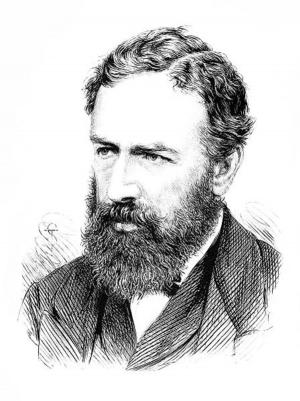| Author: | Jeremy Bentham, Timeless Books: Editor | ISBN: | 1230000468305 |
| Publisher: | www.WealthOfNation.com | Publication: | June 4, 2015 |
| Imprint: | Language: | English |
| Author: | Jeremy Bentham, Timeless Books: Editor |
| ISBN: | 1230000468305 |
| Publisher: | www.WealthOfNation.com |
| Publication: | June 4, 2015 |
| Imprint: | |
| Language: | English |
The book has an active table of contents for easy access to each chapter of the following titles:
1. THE INSPECTION-HOUSE – JEREMY BENTHAM
2. POSTSCRIPT VOLUME ONE – JEREMY BENTHAM
3. POSTSCRIPT VOLUME TWO- JEREMY BENTHAM
4. PANOPTICON VERSUS NEW SOUTH WALES – JEREMY BENTHAM
5. SECOND LETTER TO LORD PELHAM - JEREMY BENTHAM
Jeremy Bentham was a British philosopher, jurist, social reformer and the founder of modern utilitarianism. He is in the row with the greatest thinkers Adam Smith, John Stuart Mill, John Keynes, John Locke, and Alfred Marshall. Their thoughts had strong influence on building the foundation of the United States and its endeavor of open society.
Jeremy Bentham invented the axiom of the greatest happiness of the greatest number. His writings emphasised the pursuit of happiness and freedom and became popular in the new republics of America and the other counties.
Jeremy Bentham published Panopticon in 1791. Panopticon was a design for a prison building out of Bentham’s proposals for legal and social reform. He invested sixteen years of his life developing and refining the design of the building. Jeremy Bentham once hoped that the government would adopt the plan for a National Penitentiary and appoint him as contractor-governor. Although Panopticon was never built due to objection by the King, the concept had an important influence on later generations of thinkers including French philosopher Michel Foucault.
The book detailed the design of Panopticon and the letters to the King by Jeremy Bentham to look for the support of building Panopticon.
Jeremy Bentham’s work produced great influence on utilitarianism, philosophy, jurist, and economics. His view became widely recognised as the foremost philosophical voice of political radicalism and his influence has been felt in nearly every field of the humanities and social sciences.
This book is one of the most important ones about the history of designing Panopticon and the background by Jeremy Bentham, one of the greatest thinkers of modern economics and philosophy on the planet.
The book has an active table of contents for easy access to each chapter of the following titles:
1. THE INSPECTION-HOUSE – JEREMY BENTHAM
2. POSTSCRIPT VOLUME ONE – JEREMY BENTHAM
3. POSTSCRIPT VOLUME TWO- JEREMY BENTHAM
4. PANOPTICON VERSUS NEW SOUTH WALES – JEREMY BENTHAM
5. SECOND LETTER TO LORD PELHAM - JEREMY BENTHAM
Jeremy Bentham was a British philosopher, jurist, social reformer and the founder of modern utilitarianism. He is in the row with the greatest thinkers Adam Smith, John Stuart Mill, John Keynes, John Locke, and Alfred Marshall. Their thoughts had strong influence on building the foundation of the United States and its endeavor of open society.
Jeremy Bentham invented the axiom of the greatest happiness of the greatest number. His writings emphasised the pursuit of happiness and freedom and became popular in the new republics of America and the other counties.
Jeremy Bentham published Panopticon in 1791. Panopticon was a design for a prison building out of Bentham’s proposals for legal and social reform. He invested sixteen years of his life developing and refining the design of the building. Jeremy Bentham once hoped that the government would adopt the plan for a National Penitentiary and appoint him as contractor-governor. Although Panopticon was never built due to objection by the King, the concept had an important influence on later generations of thinkers including French philosopher Michel Foucault.
The book detailed the design of Panopticon and the letters to the King by Jeremy Bentham to look for the support of building Panopticon.
Jeremy Bentham’s work produced great influence on utilitarianism, philosophy, jurist, and economics. His view became widely recognised as the foremost philosophical voice of political radicalism and his influence has been felt in nearly every field of the humanities and social sciences.
This book is one of the most important ones about the history of designing Panopticon and the background by Jeremy Bentham, one of the greatest thinkers of modern economics and philosophy on the planet.















